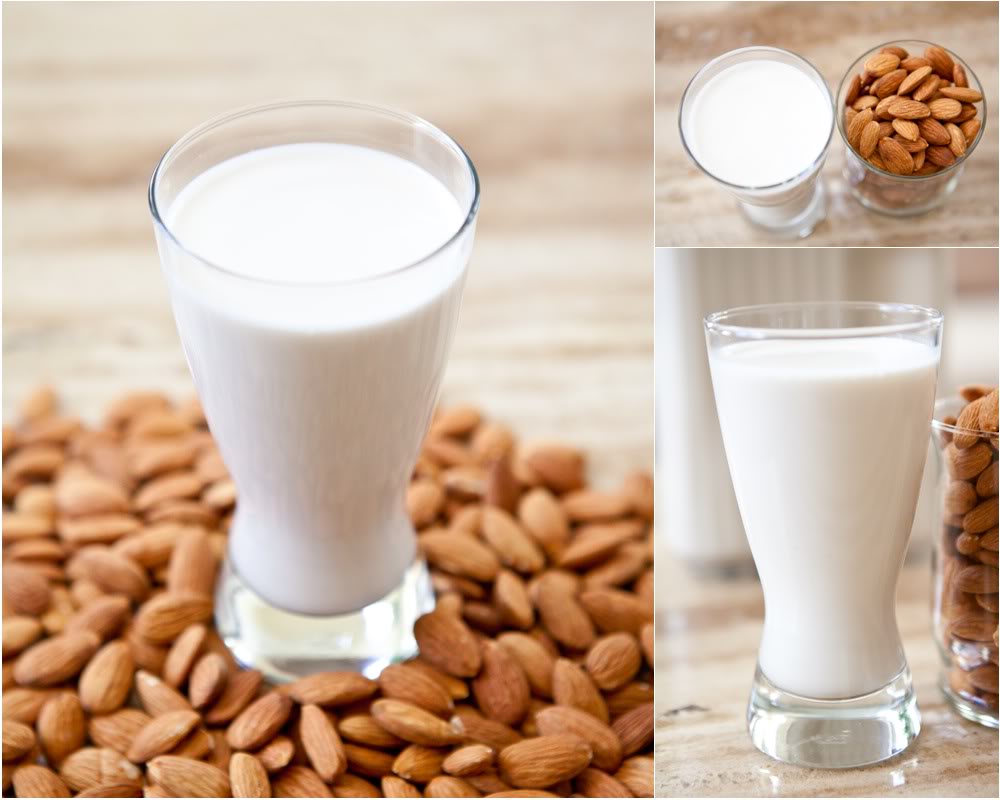Almond milk is a creamy, nutty-flavored beverage made by soaking, grinding and straining raw almonds. It is frequently used as a substitute for dairy milk, and today almost every grocery store sells almond milk, and that too in several flavors and of numerous brands. Even though almond milk consumption can be dated back to several hundred years ago, it is mostly popular with individuals who wish to avoid dairy. Overall, almond milk is not a commonly used product and so not everyone is familiar with almond milk nutritional facts.
Almond Milk Nutrition Facts
Vitamins
Almond milk and its various products are all supplemented with vitamins A, D and B complex thereby providing adequate amounts of the recommended daily intake of these nutrients. One cup of almond milk contains 500 and 200 international units of vitamin A and D respectively, fulfilling approximately 20% of an individual's recommended daily intake. It also contains three micrograms of vitamin B-12 which fulfills 100% of an average person's B-12 requirements.
Vitamin E plays a major role in improving skin health on account of its antioxidant properties. Vitamin A is vital for healthy eye sight; it helps the eyes better adjust to differences in light.
Almond milk contributes significantly in maintaining healthy bones and teeth as it is rich in both calcium and vitamin D. Additional benefits of vitamin D are that it decreases the incidence of osteoporosis in women, increases cell function and immunity and may even help prevent Alzheimer's disease.
Almond milk also contributes to better muscle health. Almond milk is rich in Vitamin B-12 especially riboflavin and iron which are muscle regulating nutrients. Iron, in particular, helps muscles to absorb and use proteins for energy, growth and repair.
Minerals
One of the almond milk nutrition facts is that it also contains several vital minerals such as phosphorous, zinc and potassium. Packaged almond milk is often fortified by calcium, which is essential for optimal bone health, allowing an individual to meet one third of the recommended daily intake. By substituting three servings of dairy products with three servings of almond milk, a person can easily meet his daily requirements for calcium; 1000 milligrams/day for men and 1200 milligrams/day for women.
Fats
Although almond milk does contain fat, it is important to note, that the fat content of this particular milk is not unhealthy. An 8-ounce serving of sweetened almond milk contains 60 calories but 25 of those calories are on account of healthy fat. Meanwhile, in an 8-ounce cup of unsweetened almond milk, 30 out of 40 calories are owing to good fats. This fat is neither saturated nor trans-fat, and it does not contain any cholesterol either.
Since this type of milk contains good fats and has low sodium content, it is known for keeping the heart healthy. This is because foods that contain limited sodium and low amount of cholesterol help maintain a normal blood pressure and keep the heart healthy. Almond milk is also rich in potassium which further helps in maintaining blood pressure.
Proteins
Almond milk is also a rich source of protein. Vegetarians and vegans often substitute dairy milk with almond milk which contains about 2 grams protein in an 8-ounce serving. Although cow's milk provides 8 grams per every 8 ounce serving, almond milk contains much greater protein than rice milk. Also, by adding protein powder to almond milk, the amount of protein can always be increased.
Sugar
One of almond milk nutrition facts pertains to its sugar content. Homemade almond milk contains no sugar while store bought ones contain sugar and other flavorings as well. For diabetics, homemade almond milk is advised.
Diabetics can benefit substantially from almond milk since it only contains 8 grams of carbohydrates per serving unlike other dairy products. This meager amount of carbohydrates does not elevate blood sugar level and is, in fact, stored as fat in the body. Further, sugars present in almond milk are glycemic in nature meaning that they are fully digested in the body and used for energy.
Flavonoid and Antioxidant Content
Almond milk is prepared by crushing almonds along with their skins. The skin is rich in flavonoids thereby making almond milk a good source of flavonoids as well. Flavonoids are important in safeguarding the body against cardiovascular diseases. Almond milk is also rich in antioxidants which also help prevent heart diseases and cancers.
Making Your Own Almond Milk
With all these almond milk nutrition facts, many prefer to make it at home themselves.
Ingredients
- Raw organic sprouted almonds: 1 cup
- Pure filtered water: 4 cup
- Honey, stevia, dates, vanilla (optional)
Instructions
- For this, you need to soak overnight one cup of raw organic sprouted almonds for minimum 12 hours in water with half a teaspoon of sea salt. The soaking process helps to break down phytic acid and enzyme inhibitors and also allows beneficial enzymes that are present in the almonds to be cultured.
- After the almonds have been soaked, they need to be rinsed and then mixed with four cups of water in a blender. The mixture needs to blend for a few minutes. Care should be taken to not overfill the blender as the mixture tends to expand and may overflow.
- Once the mixture is smooth and creamy, it should be strained using cheesecloth, sprout bag or a kitchen towel.
- Once strained, the mixture should be put back in the blender along with honey, soaked dates or other sweeteners.
- The mixture should be put in to a glass jar or pitcher and can be stored in the fridge for up to a week.

